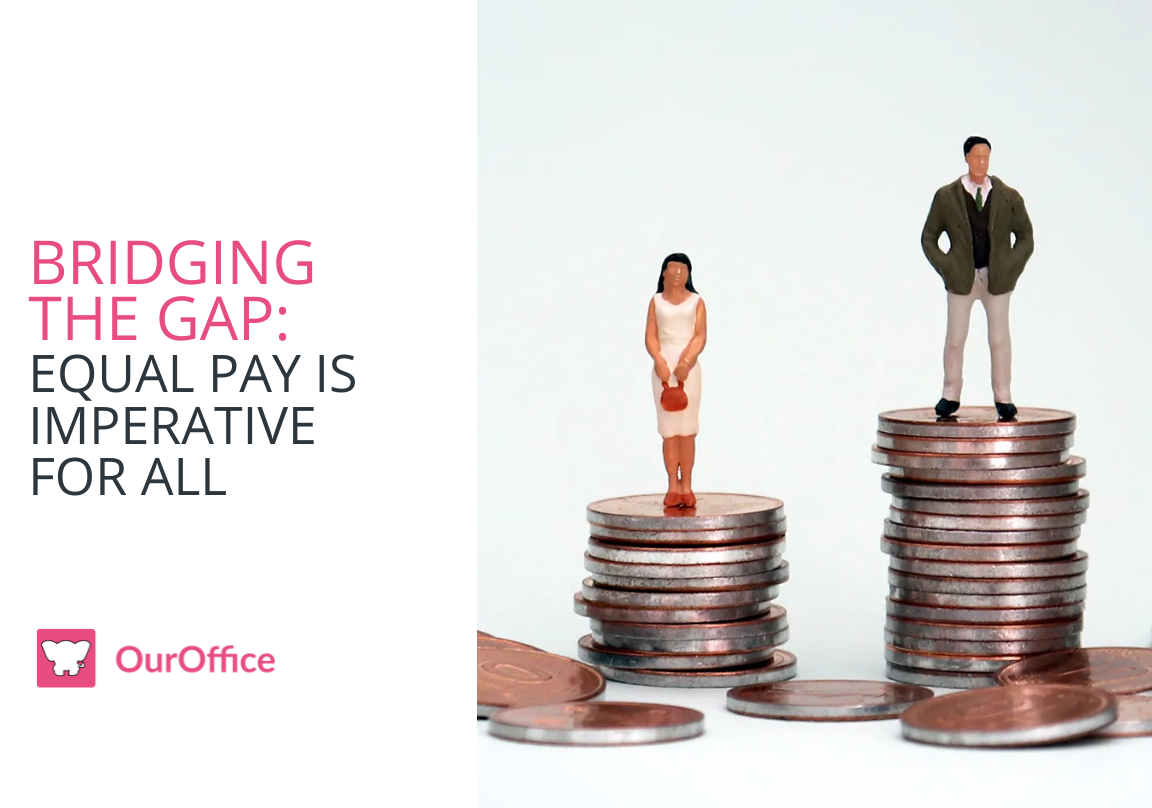30 Nov Bridging the Gap: Equal Pay is Imperative for All

November 30, 2023, marks Native Women's Equal Pay. On this day, we are raising awareness and shining a light on the fact that Native American women working full-time year-round only make, on average, 59 cents on the dollar as compared to non-Hispanic, white men. If you break it down by Tribal nation, some Native American women are paid even less.
The lasting impacts of colonialism, genocide, and state-sanctioned violence on Native communities continue to be felt today. Native Americans face higher rates of poverty, unemployment, and violence. Recent data shows that the majority of Native American mothers are breadwinners for their families; yet with Native women earning about half the amount of white men, it creates an economic barrier to provide for themselves and their families.
The American Association of University Women's (AAUW) current research on the state of the gender pay gap shows that the average woman who works full time is paid on average just 84 percent of the typical man’s pay, the goal of Equal Pay Day is to raise awareness about the gender wage gap. Because the pay gap varies significantly among different communities, particularly for women of color, other Equal Pay Days have been added to the calendar, i.e. Asian Women’s Equal Pay Day (April 2023), Black Women’s Equal Pay Day (July 2023), and Latina Equal Pay Day (October 2023), showing that many women must work far longer into the year to catch up to what their male counterparts made in the previous year.
Impacts on the Workplace
In a world that constantly evolves, pushing the boundaries of progress and inclusivity, the issue of equal pay remains a poignant reminder of the disparities that persist in our society. The fight for gender equality and equal pay for all is not merely a matter of justice; it is a fundamental principle that shapes the very foundation of a fair and just society.
Equity for women in the workplace is impacted greatly by pay and access to opportunities. Research shows that
- Women have been graduating from college at higher rates than men for decades. However, diplomas don’t translate to dollars: the pay gap remains at higher education levels and increases for some women at those levels. Women on average with bachelor's degrees are paid 23% less than their male counterparts and women with advanced degrees see about a 24% difference in pay in comparison to males.McKinsey and Company's Women in the
- Workplace 2023 report shows that yhis year, for every 100 men promoted from entry-level to manager, 87
women were promoted. This gap is trending the wrong way for women of color: this year, 73 women of color were promoted to manager for every 100 men, down from 82 women of color last year. As a result of this broken rung, women tend to fall behind and typically can’t catch up.

A workplace that recognizes and rewards talent based on merit rather than demographic factors creates a motivated and engaged workforce. This, in turn, leads to increased efficiency, creativity, and innovation. When employees feel their contributions are valued and rewarded fairly, it enhances morale and boosts productivity.
Actions Organizations Can Take to Support Women
Organizations that champion equal pay for all position themselves as forward-thinking, socially responsible entities. Such organizations are more likely to attract a diverse talent pool, fostering an inclusive and dynamic workplace culture. Additionally, they are better equipped to retain their employees, reducing turnover costs and promoting long-term stability.
Organizations must commit to standards of excellence to ensure pay equity for all employees. Some actionable steps that you can take to bridge this gap and foster a more equitable and inclusive work environment are as follows:
- Transparent Pay Practices: One of the first steps toward achieving equal pay is transparency. Organizations should be transparent about their pay structures and practices. This includes clearly defining salary ranges for various roles and ensuring that employees understand how their compensation is determined. Transparent pay practices empower employees to advocate for fair compensation and hold organizations accountable.
- Regular Pay Audits: Conducting regular pay audits is an effective way for organizations to identify and rectify any gender pay disparities that may exist within their organization. These audits involve a comprehensive review of salary data to ensure that individuals performing similar roles are compensated equally, regardless of gender or race/ethnicity. Regular audits also demonstrate a commitment to fairness and equality.
- Promoting Equal Opportunities: Equal pay is closely tied to equal opportunities. Organizations should actively work to eliminate gender bias in recruitment, promotions, and leadership development. By fostering an inclusive culture that values diversity, organizations create an environment where women have the same opportunities for career advancement as their male counterparts.
- Implementing Flexible Work Policies: Recognizing and addressing the unique challenges that women often face in balancing work and family responsibilities is crucial. Organizations can promote equal pay by implementing flexible work policies, such as remote work options, flexible scheduling, and parental leave. These policies not only support gender equality but also contribute to employee satisfaction and retention.
- Educating and Empowering Employees: Organizations should invest in educating employees about the importance of equal pay and provide resources for negotiating fair compensation. Empowering employees with the knowledge and tools to advocate for themselves contributes to a more informed and equitable workforce.
Equal pay for women is not just a women's issue; it is a matter of organizational integrity and societal progress. Companies that champion equal pay adhere to ethical principles and position themselves as leaders in the quest for workplace equality. By implementing transparent practices, conducting regular audits, promoting equal opportunities, and supporting flexible work policies, organizations can contribute to a future where the gender pay gap is a relic of the past. It's time to break the glass ceiling and ensure that every woman is compensated fairly for her contributions in the workplace.
For more questions or comments and to discuss diversity in your workplace, please do not hesitate to reach out to your DEI Advisor or to our team at DEI@ouroffice.io. Our team is here to support you in any way we can.




